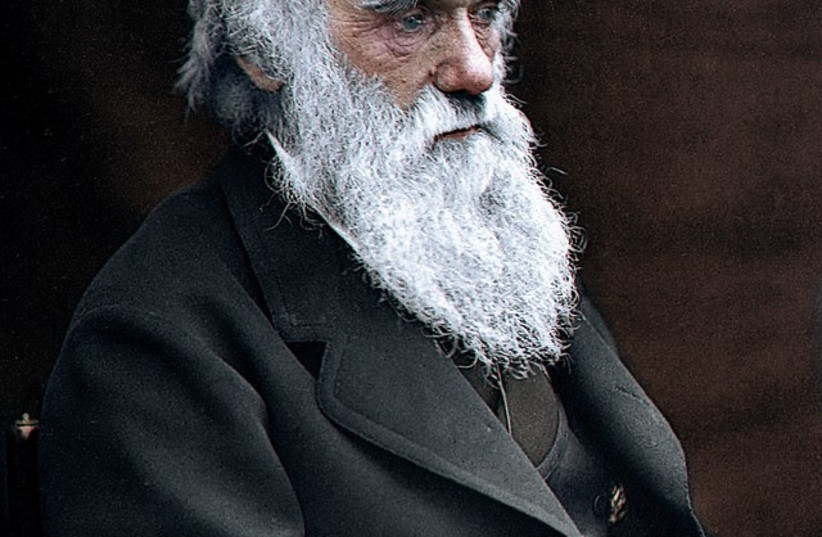Would Charles Darwin have been tolerant of homosexuals, lesbians and other minorities? The English naturalist, geologist and biologist best known for his contributions to evolutionary biology – who died exactly 140 years ago this month at the age of 72 – would likely not have been prepared for the lesbian, gay, bisexual and transgender controversies that exist in the world today.
Now, researchers in the US and Israel have found that a disbelief in human evolution is linked with higher levels of prejudice, racist attitudes and support of discriminatory behavior against blacks, immigrants, the LGBT community in the US and minorities around the world.
The study has just been published in the Journal of Personality and Social Psychology under the title “Bigotry and the human–animal divide: (Dis)belief in human evolution and bigoted attitudes across different cultures.”
The lead authors were Associate Prof. Bernhard Leidner; Stylianos Syropoulos, a doctoral candidate in the War and Peace Lab at the University of Massachusetts at Amherst; and psychology Prof. Uri Lifshin at Reichman University in Herzliya. They were assisted by Jeff Greenberg and Dylan Horner at the University of Arizona in Tucson.
With Darwin’s discovery of natural selection, the origin and adaptations of organisms were brought into the realm of science. The adaptive features of organisms could now be explained – like the phenomena of the inanimate world – as the result of natural processes.

The researchers note that Darwin’s 19th-century theory of evolution has been cited as perpetuating racism, prejudice and homophobia, in part through the phrase “survival of the fittest,” used to describe the process of natural selection.
“There have been theoretical accounts that predict the opposite of what we found, so it was exciting for us to show that this actually is not the case: that the opposite is true and that belief in evolution seems to have pretty positive effects,” Leidner commented.
“This whole effect and pattern seems to be present in all major political systems," he said. "It’s very much a human phenomenon, no matter where you are in the world.”
Across the globe – in 19 Eastern European countries, 25 Muslim countries and Israel – a low level of belief in evolution was linked to higher biases within a person’s group, prejudicial attitudes toward people in different groups and less support for conflict resolution.
The researchers hypothesized that belief in evolution would tend to increase people’s identification with all humanity due to its common ancestry and would lead to less prejudicial attitudes.
“People who perceive themselves as more similar to animals are also people who tend to have more pro-social or positive attitudes toward outgroup members or people from stigmatized and marginalized backgrounds,” Syropoulos noted. “In this investigation, we were interested in examining whether belief in evolution would also act in a similar way, because it would reinforce this belief that we are more similar to animals.”
IN THE Israel-based study, people with a stronger belief in evolution were more likely to support peace among Jews, Arabs and Palestinians. In the study involving countries in the Islamic world, belief in evolution was associated with less prejudice toward Christians and Jews. In the study based in Eastern Europe, where Orthodox Christians are the majority, a belief in evolution was linked with less prejudice toward gypsies, Jews and Muslims.
The US-based study involved data from 1993, 1994, 2000, 2006, 2008, 2010, 2012, 2014, 2016 and 2018 – the years the American General Social Survey (GSS) surveyed Americans about their beliefs in evolution, as well as measures of attitudes toward immigrants, blacks, affirmative action, LGBTQ+ people and other social matters.
They tested their hypothesis on over 60,000 people in 45 countries, in diverse populations and religious settings and across time. In eight studies involving different areas of the world, the researchers analyzed data from the GSS, the Pew Research Center and three online crowd-sourced samples. In testing their hypothesis about the associations of different levels of belief in evolution, they took account of education, political ideology, religiosity, cultural identity and scientific knowledge.
“We found the same results each time – that believing in evolution relates to less prejudice, regardless of the group you’re in, and controlling for all of these alternative explanations,” the authors wrote.
For example, religious beliefs, like political ideology, were measured separately from a belief or disbelief in evolution, the researchers note.
“Regardless of whether one considers religion an important part of their life, belief in evolution relates to less prejudice independently from belief, or lack thereof, in God or any particular religion,” Syropoulos said.
The data analysis showed unfailingly “that the disbelief in human evolution is the driving factor and most consistent predictor of prejudice in comparison to other relevant constructs,” the paper states.
The researchers suggested that a belief in evolution might expand people’s “moral circle,” leading to a sense that “we have more in common than things that are different.”
The findings also suggest that “teaching evolution seems to have side effects that might make for a better or more harmonious society," the researchers said.
“The next step is to investigate how evolution is taught in the classroom and work toward developing models to study and strengthen the positive effects.”
